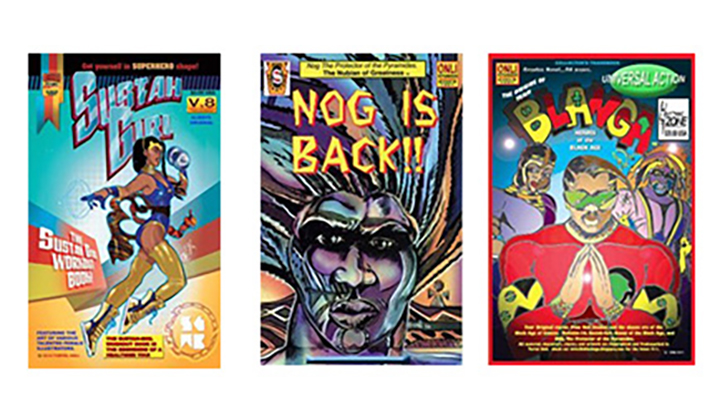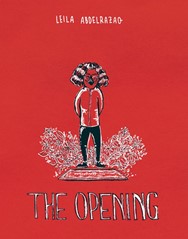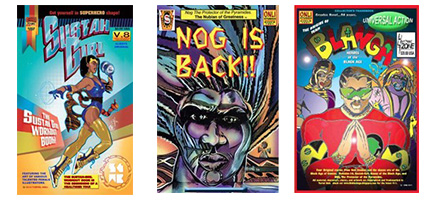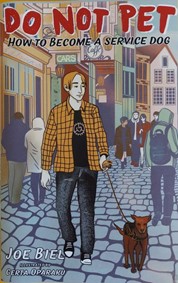What's New-a in SCUA: Comics Report

New and recently cataloged materials now available in Special Collections and University Archives. Patrons can visit SCUA (Love Library 1st floor) Monday - Thursday from 10 a.m. - 4 p.m., and are encouraged to set up an appointment for the best service.
Comics Report from Pam Jackson, Popular Culture Librarian
When it comes to the Comic Arts Collection, I pay special attention to collecting comics that celebrate (and complicate) diversity and representation, that document the human condition and shed light on social issues. Some highlights added to the collection this year include:

Comics titles that represent - or were created by artists from - Palestine and Israel. One example is The Opening by Leila Abdelrazaq. Set in Chicago (home to the largest Palestinian community in the United States) during the mid 90s, the comic tells the story of a Palestinian-American family's loss of a child.

Afrofuturism comics from artist Turtel Onli, known as "the Father" of the "Black Age of Comics," a movement dedicated to the promotion, creation, and support of Afrocentric comic books and graphic novels. These include Nog, Protector of the Pyramids; Sustah-Girl, and Blanga.

Mental Health, Chronic Illness and Disability narratives. I added comics related to numerous health concerns, including Autism, OCD, ADHD, Anxiety, Depression, Bipolar Disorder, Eating Disorders, PTSD, Suicide, Psychosis, Schizophrenia, Borderline Personality Disorder, Depersonalisation Disorder, Disassociative Identity Disorder, the dangers and history of asylums, wheelchair users, prosthetic limbs, Down Syndrome, loss of voice, hearing loss and deafness, Lupus, brain tumors, MS, blind people, and service animals. One example is Do Not Pet: How to Become a Service Dog, a comic that details the process for training a medical alert service dog, as well as other types of service dogs, the responsibility of their handlers for these lessons, and how these incredible dogs learn their skills.
We continually add titles to the collection that directly support our growing catalog of comics courses at SDSU and tie into the brand-new Certificate in Comics Studies. Such titles are often related to race, indigenous cultures, LGBTQIA+ identities, women and feminism, religion, environmentalism and climate change, politics and civics, and propaganda.

